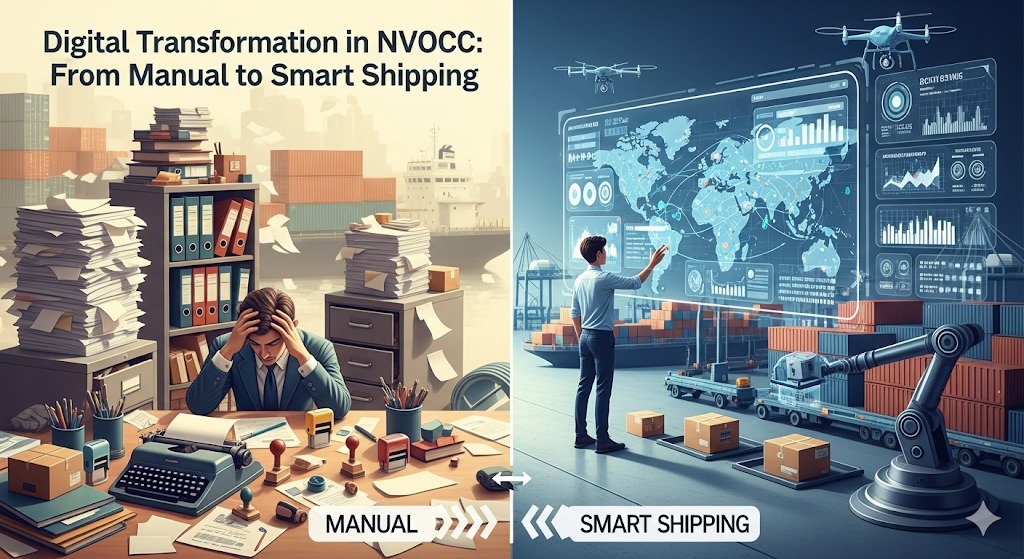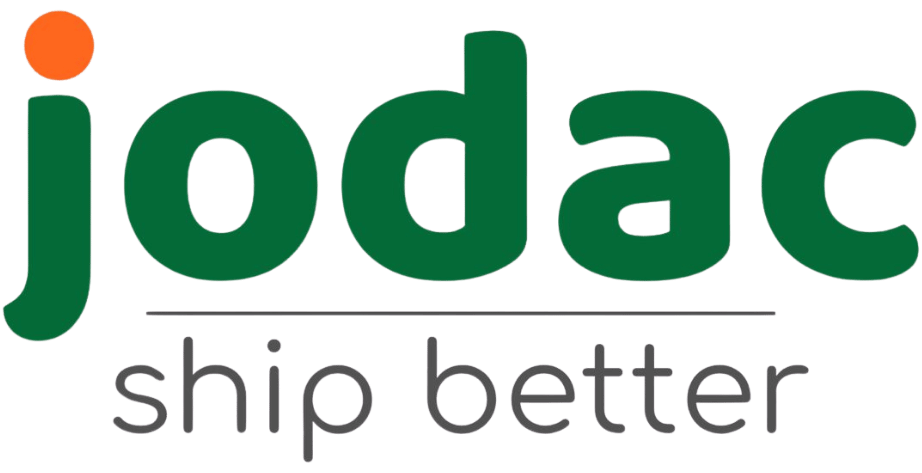Newsletters
Stay updated with our latest news, insights, and company updates. Explore our collection of newsletters below.

Digital Transformation in NVOCC: From Manual to Smart Shipping
Topic: Digital NVOCC
In today’s globalized world, shipping is no longer just about moving cargo from one port to another—it’s about speed, transparency, and customer experience. For years, the Non-Vessel Operating Common Carrier (NVOCC) industry relied heavily on manual documentation, paper-based processes, and phone/email coordination. While effective in the past, these traditional methods are increasingly inefficient in a digital-first economy.
That’s where digital transformation in NVOCC operations comes in—reshaping how shipments are planned, tracked, and delivered.
📌 1. The Shift from Paperwork to e-Documentation
- Traditional NVOCC workflows involved mountains of paperwork: Bills of Lading, manifests, customs forms, and compliance certificates.
- Today, e-Bills of Lading (e-BL) and digital documentation platforms have cut processing times drastically.
- This shift reduces errors, speeds up customs clearance, and ensures better compliance with global trade regulations.
📌 2. Smart Cargo Tracking with Real-Time Visibility
- Modern NVOCC solutions integrate with IoT sensors, GPS tracking, and AI-driven platforms.
- Shippers now get live container updates—from loading to final delivery.
- Clients benefit from predictive alerts on delays, port congestion, or route diversions, giving them more control over supply chains.
📌 3. Automation in Operations & Customer Service
- AI-powered chatbots are reducing response times for booking and cargo inquiries.
- Automated scheduling systems optimize vessel space allocation and route planning.
- This leads to faster turnaround times, lower costs, and improved customer experience.
📌 4. Blockchain for Security & Transparency
- Blockchain technology ensures that every document, from Bill of Lading to customs filings, is secure, tamper-proof, and transparent.
- It also improves trust between multiple stakeholders: shippers, carriers, freight forwarders, and customs authorities.
📌 5. Data-Driven Decision Making
- NVOCCs now use data analytics to forecast demand, optimize routes, and analyze freight trends.
- Predictive insights help businesses reduce risks and make smarter logistics decisions.
🚢 Why This Matters for Businesses
Digital transformation isn’t just a trend—it’s a necessity for global trade competitiveness. By embracing smart shipping solutions, NVOCCs can:
- Minimize delays & costs
- Improve customer satisfaction
- Enhance compliance & reduce risks
- Scale operations efficiently
🌍 The Future: Smart NVOCCs Leading the Way
As global trade becomes more complex, the winners will be those NVOCCs that embrace technology, innovation, and customer-first digital solutions. Smart shipping is no longer optional—it’s the new standard.
At Jodac Shipping Line Pvt Ltd, our vision is to empower global trade with innovation, reliability, and seamless digital experiences. By moving beyond manual systems, we’re building a future-ready logistics ecosystem where clients can ship with confidence and clarity.
👉 Conclusion
The transformation from manual to smart shipping is redefining the logistics industry. For NVOCCs, it’s an opportunity to not only modernize operations but also deliver value-added, transparent, and sustainable solutions to global customers.

